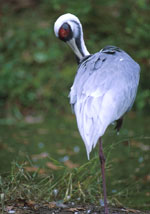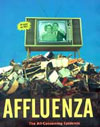Articles by Terry Tamminen
Terry Tamminen is the former secretary of the California Environmental Protection Agency and is now a policy adviser and author. His latest book is Watercolors: How JJ the Whale Saved Us.
All Articles
-
Elizabeth Grossman reviews The Hydrogen Economy by Jeremy Rifkin A review of The Hydrogen
In his new book, The Hydrogen Economy, Jeremy Rifkin argues that throughout history, the use of energy has determined the rise and fall of civilizations. In this analysis, a civilization is successful until it begins spending more of its energy supply to maintain its infrastructure than to enhance the lives of its citizens. For example, ancient Rome began to falter when it expanded its domain at the expense of the health and welfare of its people, exploiting slaves, practicing unsustainable agriculture, and exhaustively felling forests for firewood.
-
Elizabeth Grossman reviews The Birds of Heaven by Peter Matthiessen
What do Nebraska, Ngorongoro, North Korea, Outer Mongolia, England's Norfolk marshes, and the Australian Outback have in common? The crane -- the elegant, long-legged bird that adorns Asian scrolls, appears on bas reliefs at Angkor Wat and in 6,000-year-old Spanish cave paintings, is reproduced in origami and Chinese bronze, and chronicled by Aboriginal, Ainu and Cree storytellers, as well as by Homer, Virgil, Dante, and Aldo Leopold.
-
Elizabeth Grossman reviews Wild Nights by Anne Matthews
Say "New York City" and wildlife is not the first thing that comes to mind. Yet despite nearly 400 years of fast and furious city life, the Big Apple is home to a world of flora and fauna that goes far beyond sidewalk planters and pampered pets. As the grass pushing up in cracked cement sidewalks reminds us, nature has a tenacious way of claiming the interstices of the urban landscape. It is this unruly, abundant, and often overlooked universe that Anne Matthews explores in her charming and perspicacious new book, Wild Nights.
-
Elizabeth Grossman reviews Affluenza and Red
There's been a tendency since Sept. 11 to reconsider everything in light of that horrific tragedy. I've tried to resist that inclination, but I had read both Affluenza and Red before that day and could not ignore the way the attacks highlighted the importance of the books' divergent subject matters: our desire for the good life, which has made us the greatest consumers on earth; and the need to protect the wild places which that pattern of consumption threatens.



